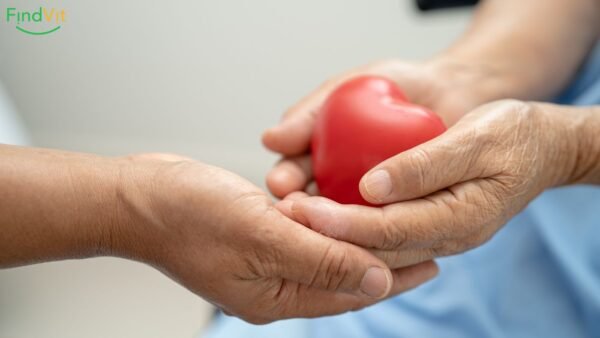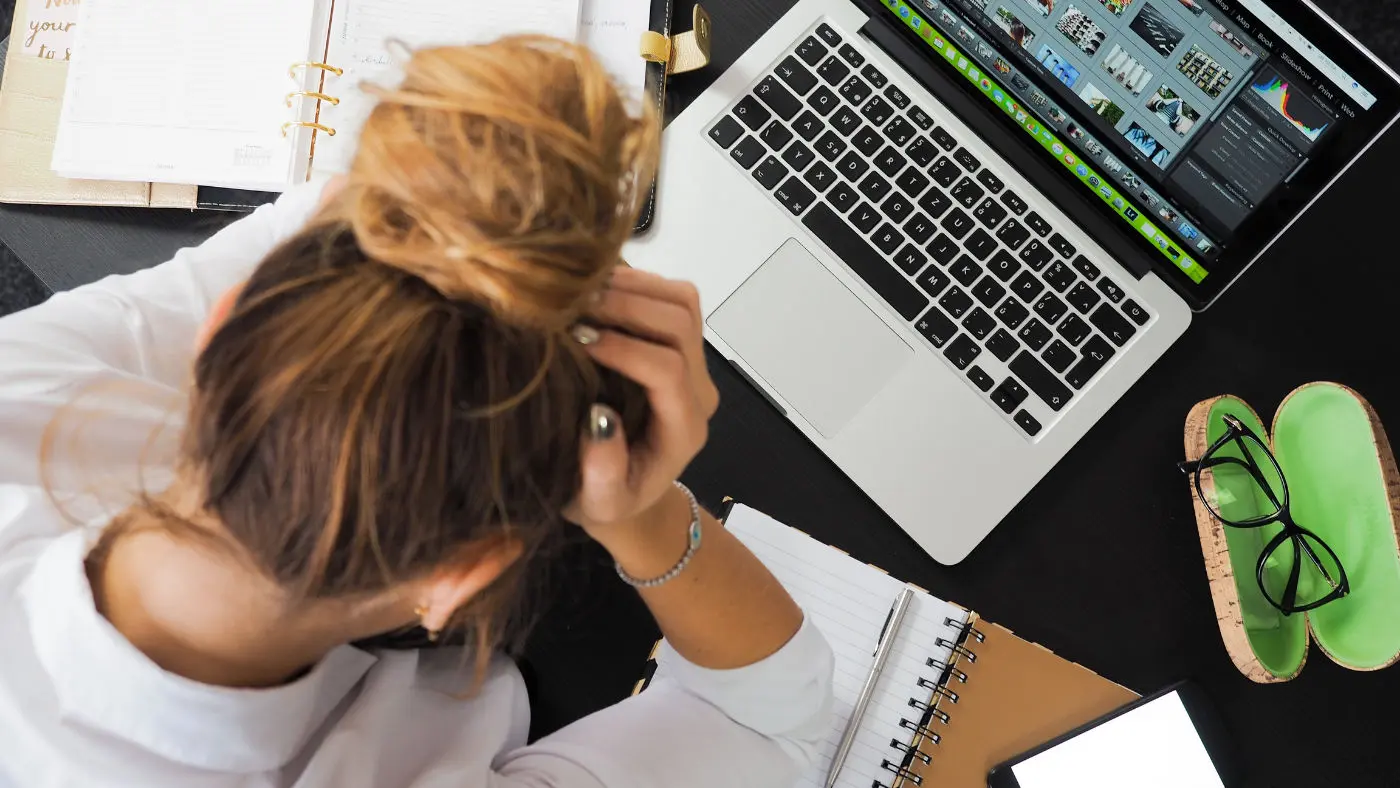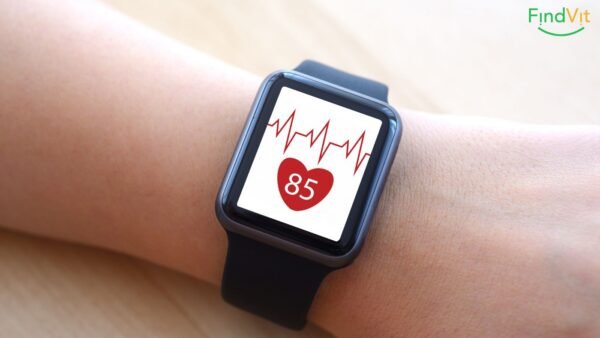
Kaip Sustiprinti Širdį: Kardiologų Patikrinti Metodai Be Vaistų
Kasmet pasaulyje nuo širdies ir kraujagyslių ligų miršta apie 17 milijonų žmonių, ir šios ligos išlieka pagrindinė lietuvių mirties priežastis. Tačiau gera žinia ta, kad…

Do you often worry? You may be feeling worried about problems that arise at work. Maybe you have butterflies in your stomach, you know that feeling when you are waiting for important information (results). Maybe you're nervous driving home in traffic jams.1
In life, we all experience anxiety more or less often. It affects everyone, both adults and children. For most people, the feeling of anxiety comes and goes only for a short time. Some anxiety attacks are shorter than others, lasting from a few minutes to a few days.
But for some people, this feeling of anxiety is much more than just passing worries or a stressful day at work. Your anxiety may persist for weeks, months, or years. It can get worse over time, sometimes becoming so severe that it interferes with your daily life. When this happens, you are said to have an anxiety disorder.
Although the symptoms of anxiety vary from person to person, it is observed that in general the body reacts to anxiety in a very specific way. When you feel anxious, your body is on high alert, looking for potential danger and activating your fight-or-die state. Common symptoms of anxiety include:
A panic attack is a sudden onset of fear that peaks within minutes and includes at least four of the following symptoms:
There are several anxiety symptoms that can occur in conditions other than anxiety disorders. This is usually the case with panic attacks. The symptoms of panic attacks are similar to those of heart disease, thyroid problems, breathing problems and other diseases.
As a result, people with panic disorder may make frequent visits to emergency rooms or doctor's offices. They may believe that their physiological health is impaired, thereby ruling out the possibility of anxiety.
Several types of anxiety disorders:
People with agoraphobia fear certain places or situations that make them feel trapped, helpless, or confused. These feelings lead to panic attacks. People with agoraphobia may try to avoid these places and situations in order to avoid panic attacks.
People with GNS experience constant anxiety and worry about activities or events, even those that are routine or simple. The anxiety is greater than it should be given the reality of the situation. Anxiety causes physical symptoms in the body, such as a headache, upset stomach, or trouble sleeping.
OCD is the constant experience of unwanted or intrusive thoughts and worries that cause anxiety. A person may know that these thoughts are trivial, but they will try to reduce their anxiety by performing certain actions or changing their behavior. This could be constant hand washing, counting, or constant checking for things like whether they have locked their house.
Panic disorder causes sudden and repeated attacks of intense anxiety, fear, or terror that reach a peak within minutes. This is called a panic attack. Those experiencing a panic attack may feel:
Panic attacks can cause anxiety about their recurrence or an attempt to avoid situations.
PTSD occurs after a person experiences a traumatic event, such as:
Symptoms are also characterized by disturbances in relaxation, disturbing dreams or memories of the traumatic event or situations. People with PTSD may also avoid things related to the trauma.
This is the child's persistent inability to speak in certain situations or places. For example, a child may refuse to speak at school, even though he may speak in other situations or places, such as at home. Selective mutism can interfere with daily life and activities such as school, work and social life.
It is a childhood condition characterized by anxiety when a child is separated from a parent or caregiver. Separation anxiety is a normal part of childhood development. Most children outgrow it within 18 months. However, some children experience effects of this disorder that interfere with their daily activities.
It is a fear of a specific object, event, or situation that causes severe anxiety when you are exposed to that thing. This is accompanied by a powerful desire to avoid it. Phobias such as arachnophobia (fear of spiders) or claustrophobia (fear of small spaces) can cause panic attacks when confronted with what you fear.
Doctors do not fully understand what causes anxiety disorders. It is now believed that certain traumatic experiences can cause anxiety in people who are prone to it. Genetics can also play an important role in anxiety. In some cases, anxiety can be caused by an underlying health problem and may be the first signs of a physical illness rather than a mental illness.
A person may experience one or more anxiety disorders at the same time. It can also accompany other mental health conditions, such as depression or bipolar disorder. This is especially true for generalized anxiety disorder, which usually accompanies another anxiety or mental condition.
It's not always easy to tell when anxiety is a serious medical problem versus just having a bad day that makes you feel upset or worried. Without treatment, your anxiety may not go away and may worsen over time. Anxiety and other mental health conditions are easier to treat when we address them earlier rather than when symptoms worsen.
You should see a doctor if:
If you've decided you need help for persistent anxiety, the first step is to see your GP. He can determine if your anxiety is related to an underlying physical health condition. If they find an underlying cause, they can give you the right treatment plan to help you feel better.
Your doctor will refer you to a mental health professional if they determine that your anxiety is not the result of any physical medical condition. The mental health professionals you will be referred to include a psychiatrist and a psychologist.
A psychiatrist is a licensed physician who is trained to diagnose and treat mental health and may prescribe medication, among other treatments. A psychologist is a mental health professional who can diagnose and treat mental health through counseling only and without prescribing medication.
Ask your doctor about several mental health providers and where they can make a referral. It's important to find a mental health provider that you like and truly trust. You may need to talk to several people to find the person who is the best fit for you.
To help diagnose an anxiety disorder, your psychologist will perform a psychological assessment on you during your first therapy session. It means sitting side by side talking about your thoughts, behavior and feelings.
You'll know your mental health professional is right for you if you feel comfortable talking to them about your concerns. You will need to see a psychiatrist if it is determined that you need medication to help control your anxiety. It is enough for you to see a psychologist if it is determined that your anxiety can only be treated with talk therapy.
Remember that it takes time to start seeing results from anxiety treatment. Be patient and follow the advice of your chosen professional to get the best result. But also know that if you feel uneasy talking to a psychologist/psychiatrist or if you don't feel like you're making enough progress, you can always turn to another professional. Ask your relatives or family doctor for help.
While medication and talking to a therapist can help treat anxiety, dealing with anxiety is a 24-7 task. Fortunately, there are many simple lifestyle changes you can make at home to further reduce anxiety.
Get some exercise. Establishing an exercise or training regimen and tracking how your health improves can help reduce stress and anxiety. If you usually don't exercise much, start with just a light vaginal session and increase the intensity over time.
Avoid alcohol and narcotics. Using alcohol or drugs can cause or increase your anxiety. If you're having trouble quitting, talk to your doctor or seek help from people who have successfully kicked unhealthy habits.
Stop smoking and reduce or stop caffeinated beverages. Nicotine in cigarettes and caffeine in beverages such as coffee, tea and energy drinks can increase anxiety.
Try relaxation and stress management techniques. Meditation, chanting mantras, practicing visualization techniques, and yoga can promote relaxation and reduce anxiety.
Make time for sleep. Lack of sleep can increase feelings of restlessness and anxiety. If you have trouble sleeping, ask your doctor for help.
Follow a healthy diet. Eat plenty of fruits, vegetables, nuts, and lean proteins like chicken and fish.
Importance: Omega-3 fatty acids are very important for brain health and function. They help strengthen cell membranes in the brain and promote neuroplasticity, the ability of the brain's cell network to change and adapt to new information. Research shows that omega-3 fatty acids can reduce inflammation and promote better mood regulation, which is crucial for reducing symptoms of anxiety and depression.

Importance: Magnesium is an important mineral that functions in more than 300 enzyme systems and is vital for nerve and muscle function. It helps regulate the transmission of nerve impulses and reduce the hyperactivity of the nervous system, which can contribute to anxiety and stress. Magnesium deficiency can lead to increased anxiety, tension, and sleep disturbances, so adequate magnesium in the diet is important for emotional well-being and resistance to stress.

Importance: B vitamins, especially B6 (pyridoxine) and B12 (cobalamin), play a key role in nervous system function and energy production. They help produce neurotransmitters like serotonin and dopamine that regulate mood. Vitamin B6 is necessary for the synthesis of serotonin, the happy hormone that reduces depression and anxiety. Vitamin B12 helps maintain healthy nerve cells and can help prevent mood swings. A lack of B vitamins can directly contribute to increased anxiety and other psychological disorders.

Including these nutrients in your diet can not only improve your overall well-being, but also effectively reduce feelings of anxiety. However, it's important to remember that a balanced diet, regular physical activity, and adequate rest are also necessary components for better emotional health.
Coping with an anxiety disorder can be a daunting challenge. Here are some things you can do to make it a lot easier:
Get knowledge. Learn as much as you can about your condition and what treatments are available to you so that you can make the right decisions about your own treatment.
Be consistent. Follow the treatment plan prescribed by your specialist, take your medication as prescribed and attend all your treatment appointments. This will help manage the symptoms of your anxiety disorder.
Know yourself. Find out what is causing your anxiety and practice the coping techniques you developed with your psychologist. Once you notice your anxiety and begin to apply the agreed-upon techniques, you will find that you feel better.
Write it down. Keeping a journal of your feelings and experiences will make it much easier to determine the best treatment plan for you.
Get support. Consider joining a group where you can share your experiences and hear from others who are dealing with anxiety disorders.
Manage your time wisely. This can help reduce your anxiety and help you get the results you want in the best possible way.
Be social. Isolation from friends and family can actually make things worse. Make future plans with people you enjoy spending time with.
You are the host. Don't let your anxiety control your life. If you feel low, plan an activity day for walking, socializing, work, hobbies, games, volunteering, activities that will take your mind off your worries or fears.
Strengthen the body. We live in busy times and it is important to provide the body with the right amount of nutrients. It's a good time to supplement your body with nutrients that can help relax and feel calm. In any case, it's best to consult with a professional to come up with the most appropriate supplement plan.
Anxiety is a natural human response to stress. It is a state of feeling anxious, fearful, or tense, and it can be related to specific events or situations. However, anxiety can also be unfounded, and its symptoms are very diverse.
The causes of anxiety can be very diverse, including genetic predisposition, stress in work or personal life, financial difficulties, health problems or even social rejection.
Symptoms of anxiety include, but are not limited to, an increased heart rate, difficulty breathing, feelings of insecurity, difficulty sleeping, and persistent feelings of anxiety even for no apparent reason.
Managing anxiety includes a variety of strategies such as breathing exercises, meditation, physical activity, proper nutrition, adequate sleep, and professional help when needed.
If your anxiety interferes with your daily activities or you feel that you cannot manage it on your own, it is important to seek help. This can be a psychologist, psychotherapist or other healthcare professionals.
Anxiety is a common phenomenon that many people around the world face. It is important to recognize that this is not something to feel ashamed or guilty about. An open discussion about the symptoms, causes, and management strategies of anxiety is the first step toward a healthier and happier life. Never be afraid to seek help and remember that you are not alone. Together, we can find ways to manage anxiety and enjoy every moment of life.
It is important to remember that everyone's health is individual and there is no one-size-fits-all recipe!
So, if you are looking for ways to strengthen your body, have energy and avoid mood swings and regain peace of mind, health professionals recommend Testa "Your Day".
*In time, pay attention to the signals sent by your well-being;
*Replenish the body with natural minerals or vitamins;
*Enjoy energy and good mood every day!
† Our website provides general information only. If you have a specific illness or are taking additional medications or supplements, consult your doctor or pharmacist.

Kasmet pasaulyje nuo širdies ir kraujagyslių ligų miršta apie 17 milijonų žmonių, ir šios ligos išlieka pagrindinė lietuvių mirties priežastis. Tačiau gera žinia ta, kad…

Artificial intelligence in medicine has made impressive progress – it has already successfully passed medical licensing exams and can handle internal medicine cases. Even more impressive is that special…

The human heart beats an average of more than 2.5 billion times during a lifetime. This amazing organ works tirelessly to maintain a vital pulse rhythm, the rate of which (pulse rate)…

KIKI Health Zeolitas - Ceolitas, milteliai, 60 g

Trace Minerals Mega Magnesium 400 mg. Liquid with minerals, 118 ml.

KIKI Health Zeolitas - Ceolitas su aktyvuota anglimi, milteliai 60 g.

KIKI Health Zeolitas - Ceolitas, milteliai, 120 g.

SUPER OMEGA-3 - norvegiški žuvų taukai su Omega-3, didelė koncentracija, 100+30 kapsulių
| Cookie | Duration | Description |
|---|---|---|
| cookielawinfo-checkbox-advertisement | 1 year | Šį slapuką nustato GDPR Cookie Consent papildinys. Slapukas naudojamas išsaugoti vartotojo sutikimą dėl slapukų kategorijoje „Analitiniai“. |
| cookielawinfo-checkbox-analytics | 11 mėnesių | Šį slapuką nustato GDPR Cookie Consent papildinys. Slapukas naudojamas išsaugoti vartotojo sutikimą dėl slapukų kategorijoje „Analitiniai“. |
| cookielawinfo-checkbox-functional | 11 mėnesių | Slapukas nustatomas pagal GDPR slapukų sutikimą, kad būtų įrašytas vartotojo sutikimas dėl slapukų kategorijoje „Funkciniai“. |
| cookielawinfo-checkbox-necessary | 11 mėnesių | Šį slapuką nustato GDPR Cookie Consent papildinys. Slapukai naudojami saugoti vartotojo sutikimą dėl slapukų kategorijoje „Būtini“. |
| cookielawinfo-checkbox-others | 11 mėnesių | Šį slapuką nustato GDPR Cookie Consent papildinys. Slapukai naudojami saugoti vartotojo sutikimą dėl slapukų kategorijoje „Kiti“. |
| cookielawinfo-checkbox-performance | 11 mėnesių | Šį slapuką nustato GDPR Cookie Consent papildinys. Slapukai naudojami saugoti vartotojo sutikimą dėl slapukų kategorijoje „Vykdymas“. |
| elementor | never | Šį slapuką naudoja svetainės „WordPress“ tema. Tai leidžia svetainės savininkui realiuoju laiku įdiegti arba keisti svetainės turinį. |
| viewed_cookie_policy | 11 mėnesių | Slapuką nustato GDPR Cookie Consent įskiepis ir jis naudojamas norint išsaugoti, ar vartotojas sutiko, kad būtų naudojami slapukai, ar ne. Jame nesaugomi jokie asmens duomenys. |
| Cookie | Duration | Description |
|---|---|---|
| _ga | 2 metai | _ga slapukas, įdiegtas Google Analytics, apskaičiuoja lankytojų, seansų ir kampanijos duomenis, taip pat seka svetainės naudojimą svetainės analizės ataskaitoje. Slapukas išsaugo informaciją anonimiškai ir priskiria atsitiktinai sugeneruotą skaičių unikaliems lankytojams atpažinti. |
| _ga_JWS80V051Z | 2 metai | Šį slapuką įdiegė Google Analytics. |
| omnisendSessionID | 30 minučių | Šį slapuką nustato teikėjas Omnisend. Šis slapukas naudojamas unikaliam seanso ID nustatyti. Slapukas statistiniais tikslais renka informaciją apie lankytojų elgesį svetainėje. |
| soundestID | sesijos metu | Šį slapuką nustato teikėjas Omnisend. Šis slapukas naudojamas norint nustatyti, ar lankytojas svetainėje yra naujas, ar lankytojas lankėsi anksčiau. |
| Cookie | Duration | Description |
|---|---|---|
| omnisendAnonymousID | 1 year | Šį slapuką nustato teikėjas Omnisend. Šis slapukas naudojamas išsaugoti vartotojo veiksmą svetainėje su unikaliu ID. Slapukas užšifruoja lankytojo duomenis, kad būtų apsaugoti naudotojo duomenys. |
| soundest-views | sesijos metu | Aprašymas negalimas. |
| woocommerce_recently_viewed | sesijos metu | Aprašymas nepasiekiamas. |
